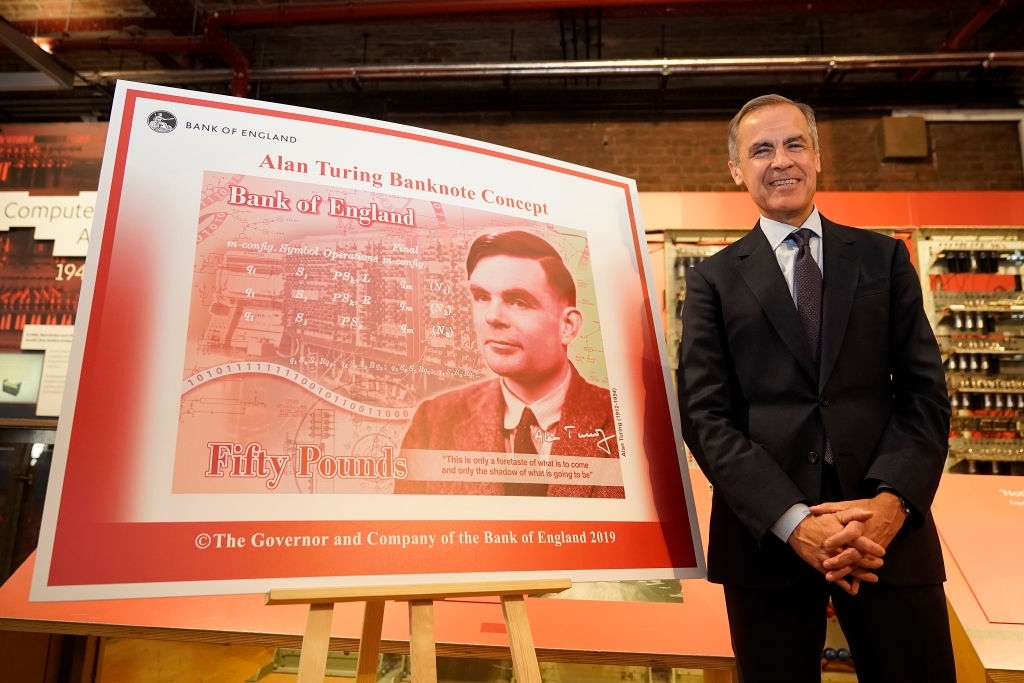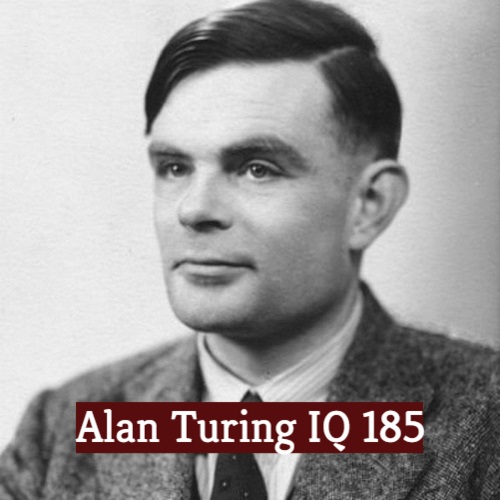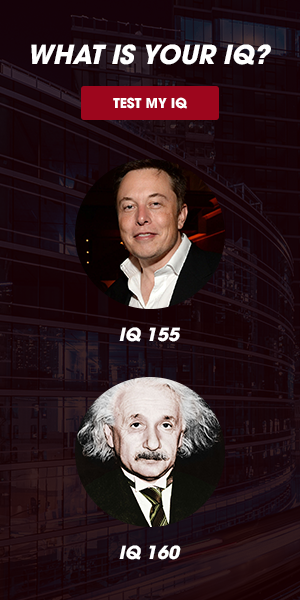ALAN TURING - 185
Alan Turing IQ score is 185, which is considered as a super genius and in top 0.1% of the population in the world.I. The life of Alan Turing
Alan Mathison Turing OBE FRS was born in 23 June 1912 and died in 7 June 1954. With Alan Turing IQ, it’s obvious that he was an English computer scientist, mathematician, logician, cryptanalyst, philosopher, and theoretical biologist.II. Thinking machines - Theological objection
In 1950, Turing, in his “Computing Machinery and Intelligences”, wherein the so-called “Turing test” originated (similar to the Cartesian automaton problem), sought out consider the question: “can machines think?”, centered around the notion of a modern digital computer, of the Charles Babbage “analytical engine” type, following which Turing lists seven points of objection this proposal, or “opinions opposed to my own”, the first, ironically enough, being the religious objection, stated in full below:“Thinking is a function of man's immortal soul. God has given an immortal soul to every man and woman, but not to any other animal or to machines. Hence no animal or machine can think.
<<< Read more >>> Stanley Kubrick - IQ 200
I am unable to accept any part of this, but will attempt to reply in theological terms. I should find the argument more convincing if animals were classed with men, for there is a greater difference, to my mind, between the typical animate and the inanimate than there is between man and the other animals. The arbitrary character of the orthodox view becomes clearer if we consider how it might appear to a member of some other religious community. How do Christians regard the Muslim view that women have no souls?
But let us leave this point aside and return to the main argument. It appears to me that the argument quoted above implies a serious restriction of the omnipotence of the Almighty. It is admitted that there are certain things that He cannot do such as making one equal to two, but should we not believe that He has freedom to confer a soul on an elephant if He sees fit? We might expect that He would only exercise this power in conjunction with a mutation which provided the elephant with an appropriately improved brain to minister to the needs of this sort.
An argument of exactly similar form may be made for the case of machines. It may seem different because it is more difficult to "swallow." But this really only means that we think it would be less likely that He would consider the circumstances suitable for conferring a soul. The circumstances in question are discussed in the rest of this paper. In attempting to construct such machines we should not be irreverently usurping His power of creating souls, any more than we are in the procreation of children: rather we are, in either case, instruments of His will providing mansions for the souls that He creates.

III. Chemical morphology
In 1952, Turing, in his “The Chemical Basis of Morphogenesis”, considered a "ring" of identical cells containing various chemical substances, called morphogens, and the patterns result from interactions between these morphogens that diffuse in the medium and enter into chemical reactions with each other. This model is said to be akin or related in some way to a cellular automaton theory, the Neumann automaton theory in particular. English-born Canadian physical chemist Lionel Harrison employed Turing's chemical morphology theory in his 1980s kinetic theory of living pattern theories.
<<< Click here >>> Martin Shkreli - 160 - 180
Source: Wikipedia and Eoht




